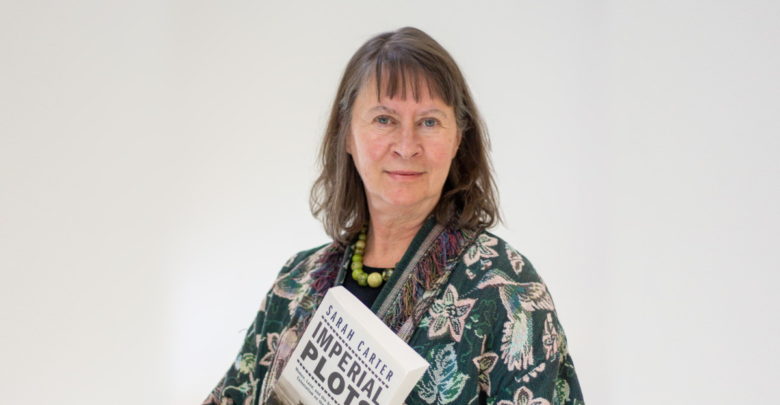Research on women and Indigenous populations in Prairies wins professor Killam Award
Recipient Sarah Carter hopes to use award to do a sweeping exploration of land ownership in the Prairies
 Laura Sou - Faculty of Education
Laura Sou - Faculty of EducationExtensive research on the effects of British colonialism on prairie women and Indigenous populations has landed a University of Alberta professor the university’s first-ever Izaak Walton Killam Prize in the Humanities.
Sarah Carter, a professor in the department of history and classics and the faculty of native studies, has spent her career studying the Canadian prairies and the impact of historical British dominance. With a focus on the impact of British colonialism and the effect it had on Indigenous people and women, her work earned the 2020 recipient of the Canada Council Killam prize — an award given to Canadian scholars who show excellence in their respective field.
Despite previous U of A professors receiving Killam scholarships, Carter is the first to receive the Killam award in the humanities, something she is very grateful for.
“I’m very grateful for the recognition and very grateful for the attention it brings to the humanities,” she said.
Her research interest stems from not learning much about these important stories in high school and university, while still having a deep-rooted interest in understanding where she is from — the prairie.
“ I just became aware that there was a much deeper and more complex story and history that we weren’t really getting into and I was not alone in asking all these questions in my generation: where were women? Where were the workers?” she said.
With two books coming out soon, Carter hopes the prize’s funding can be used to do a sweeping exploration of the history of land on the prairies, how it was carved up and distributed and who was prevented from getting it — a project emphasizing the fact that land ownership is intrinsic to the development of the prairies.
“It will be about the treaties to the present-day, and is a continuation of my work that sees land as the bedrock or the foundation of the history of western Canada,” Carter said
Along her journey, Carter has had many important people support and inspire her. This includes her husband Walter Hildebrandt, who encouraged her to keep aiming upwards despite gendered expectations in the field.
“He’s been a stalwart supporter and encouraged me so much along the way because like many women academics I didn’t really ever see myself in this role,” she said. “I never woke up one day saying I’m going to be a history professor. You just go from one stage to the next… and you think well maybe I could just go that little bit further, so he was really important [in] encouraging me.”
Olive Dickason, former U of A professor and Métis scholar, was also very influential to Carter as “her work was very important in questioning the way Canadian history was written to date.”
Having studied and worked alongside many people from Indigenous communities, Carter sees value in people educating themselves on Canada’s Indigenous communities and their histories.
“I would say carefully read the recommendations of the Truth and Reconciliation Commision,” she said. “There’s many recommendations along those lines about what people can do, how we can continue to learn about Indigenous peoples and issues of race, issues of discrimination and inequality…. and it’s really important that we educate ourselves.”
For those looking interested to learn more about the history of the prairies, Carter emphasizes the importance of listening to Indigenous communities
“We have a lot to learn from Indigenous Elders and if you have any opportunities to learn from them, people ought to do that.”




